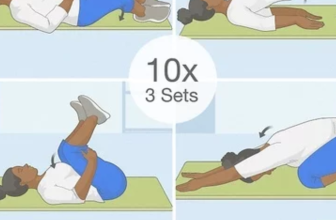
Addison’s disease might not be a term you hear every day, but for those living with it, its impact is all too real—especially when it comes to their intimate lives. This condition happens when the adrenal glands, which sit just above your kidneys, stop producing enough cortisol and aldosterone, two hormones that keep things running smoothly. The result? Fatigue, mood swings, and yes, challenges in the bedroom. But don’t worry—understanding how this all works can help you and your partner navigate these changes together. Let’s dive in.
1. So, What’s the Deal with Addison’s Disease?
Imagine your adrenal glands as tiny power plants for your body, cranking out cortisol, the hormone that helps you deal with stress, and aldosterone, which keeps your blood pressure steady by balancing salt and water levels. But with Addison’s Disease, these power plants start to shut down. It’s like the power’s gone out, and suddenly, you’re dealing with low energy, mood swings, and other symptoms that can mess with your everyday life—and your sex drive.
This drop in cortisol means your body’s energy reserves take a hit, leaving you feeling wiped out even after a full night’s sleep. It’s like running a marathon but not getting the endorphin boost at the finish line. Meanwhile, low aldosterone means your blood pressure might be all over the place, making you feel lightheaded or even more exhausted. When you’re fighting these battles every day, it’s no wonder that maintaining a healthy sex life can feel like a struggle.
2. The Hormone Rollercoaster: How It Impacts Desire
Let’s talk hormones for a second. Cortisol and aldosterone aren’t the only players here—Addison’s can also mess with your sex hormones, like testosterone in men and estrogen in women. Lower levels of these hormones can mean lower libido. Think of it like turning down the volume on your favorite song—everything’s still there, but it just doesn’t sound the same.
For men, this might show up as erectile dysfunction or just not feeling the same spark. Women, on the other hand, might deal with vaginal dryness or find that their usual levels of arousal have dipped. And when your body isn’t cooperating, it can feel like your mind isn’t either, making intimacy a bit of a challenge.
The frustration can build up, both physically and emotionally. It’s not just about wanting to be close with your partner; it’s about feeling like your body is getting in the way of that connection. But don’t worry, there are ways to work through it, and a lot of it starts with understanding these changes.

3. The Mental Toll: When Stress Meets Anxiety
If you’re living with Addison’s Disease, you might already know that mental health can take a hit too. The lack of cortisol doesn’t just drain your physical energy; it can mess with your mood, making anxiety and depression more common. And let’s face it—nothing kills the mood like feeling down or anxious.
When you’re dealing with constant stress, the idea of intimacy might feel like just another item on a never-ending to-do list. Plus, if you’re feeling self-conscious about changes in your body—like weight gain from medication or skin changes—those insecurities can make it even harder to connect with your partner.
But here’s the silver lining: Communication is your best friend here. Being open with your partner about what’s going on can help reduce the pressure and make both of you feel more at ease. It’s all about creating a space where you feel comfortable and understood.
4. Managing the Challenges: Finding Your Rhythm Again
Now, let’s get practical. Managing Addison’s disease isn’t just about popping pills; it’s about finding what works best for you. Hormone Replacement Therapy (HRT) is the go-to treatment, using medications like hydrocortisone to replace what your adrenal glands aren’t making. When the balance is right, you might notice a little more energy and a boost in mood—and that can make all the difference in the bedroom.
But medication is just one part of the equation. Think about adding some healthy habits into your routine. Regular exercise, for example, can do wonders for boosting your mood and overall energy levels. It’s like a natural shot of endorphins. Even something as simple as taking a daily walk can help improve your outlook and get you feeling more like yourself again.
And don’t forget about sleep. Quality rest is crucial when your body’s already working overtime to keep up. Make sleep a priority, and try to keep stress levels in check with activities like yoga, meditation, or even just a few deep breaths when you need to unwind. The better you feel overall, the easier it will be to reconnect with your partner.

5. Talking It Out: Keeping the Connection Alive
It might sound obvious, but one of the best ways to keep your relationship strong is to talk about what’s going on. Living with Addison’s Disease means there will be good days and bad days, and it helps if your partner knows what to expect. Maybe mornings are better for you because you’ve got more energy, or maybe you just need a little extra time to wind down in the evenings. Sharing these details can help both of you find a rhythm that works.
And don’t be afraid to get creative. Intimacy isn’t just about sex—sometimes, it’s about finding other ways to connect, like a good cuddle session or a romantic dinner at home. Building that emotional intimacy can make the physical part even better when the time is right.
For some couples, therapy can be a game-changer. A good counselor can help you navigate the emotional ups and downs, giving both you and your partner tools to communicate more effectively. It’s not about fixing things overnight; it’s about understanding each other better.
6. Real Stories: You’re Not Alone With Addison’s Disease
Hearing from others who are living with Addison’s Disease can be a game-changer. Take Sarah, for example, who shares on social media about how she manages to keep the spark alive in her marriage despite the fatigue and mood swings. “It’s all about finding those little moments to connect, even if it’s just watching a movie together on the couch,” she says. “Sometimes, that closeness is enough to remind us why we’re in this together.”
Or think about Jason, who’s been working with his doctor to get his hormone levels just right. “I used to feel like I had nothing left to give at the end of the day,” he admits. “But after adjusting my medication and adding a morning walk into my routine, I’ve noticed a huge difference—not just in my energy levels, but in how I feel about myself and my relationship.”
These stories remind us that, while Addison’s Disease can make intimacy harder, it doesn’t have to be impossible. It’s all about finding what works for you and leaning into the support around you.
7. FAQs: Common Questions About Addison’s Disease and Sexual Health
- “Will medication help my sex drive?”
It can, but it’s all about finding the right balance. Hormone replacement therapy can improve energy levels, which might boost your libido. Make sure you talk to your doctor about how you’re feeling—sometimes a small adjustment can make a big difference. - “How do I talk to my partner about Addison’s Disease?”
Keep it simple and honest. Let them know what you’re dealing with and how Addison’s Disease affects you. Chances are, they want to understand and support you, but they might not know how unless you tell them. - “Are there natural ways to help?”
Yes! Exercise, a balanced diet, and stress management can all support your overall health. Just remember, always check with your doctor before starting any new supplements or routines. - “How does Addison’s Disease affect relationships?”
- Living with Addison’s Disease can bring challenges to a relationship, especially with the fatigue and mood changes that come with it. Partners may need to adjust their expectations and find new ways to connect emotionally. Open communication and understanding are key to maintaining a strong bond despite the ups and downs caused by the condition.
- “Can Addison’s Disease cause changes in sexual performance?”
- Yes, Addison’s Disease can lead to changes in sexual performance due to hormonal imbalances, including low levels of testosterone or estrogen. This can result in reduced stamina, difficulty maintaining arousal, and lower overall satisfaction. Working closely with a doctor to manage hormone levels can help improve these symptoms.
- “Is it possible to regain libido with Addison’s Disease?”
- Regaining libido with Addison’s Disease is possible, but it often requires a combination of proper medication management, lifestyle changes, and open communication with your partner. Adjusting your hormone replacement therapy (HRT) and focusing on self-care can make a significant difference in how you feel.
- “What lifestyle changes can help manage Addison’s Disease and improve intimacy?”
- Simple lifestyle changes like maintaining a healthy diet, staying hydrated, and engaging in regular physical activity can improve overall well-being with Addison’s Disease. These changes, alongside proper stress management, can help boost energy levels, making it easier to engage in intimate moments.
- “Can stress make Addison’s Disease symptoms worse?”
- Yes, stress can exacerbate symptoms of Addison’s Disease, as the body’s natural cortisol response is impaired. This can lead to increased fatigue, anxiety, and decreased interest in intimacy. Managing stress through techniques like mindfulness, therapy, or relaxation exercises can help improve your quality of life and relationships.
8. Wrapping It Up: Embracing a New Normal
Living with Addison’s disease isn’t easy, especially when it comes to your intimate life. But with the right tools—both in your medicine cabinet and in your communication toolbox—you can find a new normal that works for you. It might take some patience and a bit of trial and error, but with a supportive partner by your side, you can keep that connection alive.
Remember, intimacy is about more than just physicality. It’s about feeling understood, valued, and loved—even on the days when you don’t have much energy left. So take it one step at a time, and know that you’re not alone on this journey. You’ve got this.








